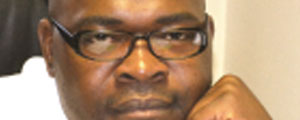
Recent news headlines read like a script from the 1960s when civil rights movement dominated American politics in the fight against racial segregation and discrimination against black Americans.
They also read like echoes from the African liberation struggles when the freedom fighters mobilised people to fight for self-determination and ward off colonialism, apartheid and racism. The only difference is that these headlines are emerging from today’s state-of-the-art high definition pictures.
It is almost half a century since the world thought it had made a breakthrough in ensuring racial equality and human dignity. These headlines show that the clock has been ticking backwards and the black people are seemingly shortchanged either by their national systems or global system.
This is not to say the white side of the divide does not have its own fair share of problems. Watching television news today, one is faced with pictures of human bodies burning from the flames of xenophobia, multitudes of migrants fleeing their continent for better living conditions, or demonstrating against injustices.
In the past few weeks, just after the Garissa attacks in Kenya which left over 140 students dead, black Africans had to grapple with xenophobia attacks in South Africa, which claimed many lives and left several injured and thousands homeless.
Xenophobia has seen blacks victimising blacks at the backyard of the rainbow nation. This is despite that South Africa is often referred to as an example of democracy. While the situation has calmed down, there is no guarantee that it will not happen again. Democracy has shortchanged both local citizens and foreign migrants except for presenting them as instruments of fallacious freedom.
The xenophobia stories came concurrently with the deaths of migrants escaping poverty from Africa to Europe. The migrant story tells many other stories about how unwelcome this world has become for the black forks in Africa. Poverty has reached irresistible levels and both the West and African governments have not done enough to make it easy for the black population in Africa.
Blacks too have lost patience with their governments and they are willing to risk their lives in search of better living conditions. Policies in some countries are literally sidelining blacks in favour of foreign investors. Asians have become a new phenomenon is some African countries where they are given all the paperwork they need upon arrival. In one country I visited recently, I was told it was much easier for a Chinese or Indian to get a business permit than nationals because the former was considered an investor, while the later an indigenous.
- Chamisa under fire over US$120K donation
- Mavhunga puts DeMbare into Chibuku quarterfinals
- Pension funds bet on Cabora Bassa oilfields
- Councils defy govt fire tender directive
Keep Reading
Black people are on the fringes, seen as incapable and as a result, some have opted to cross the oceans. They would rather be treated like second-class citizens in foreign lands than die of hunger in their home countries. The promise of independence has fast waned, leaving many in destitution. African governments have remained aloof to these issues, preferring to safeguard political power.
In the United States, the cradle of democracy, the house seems to be on fire with several racially inspired demonstrations against racial profiling and police use of violence instigated by the deaths of black people in Cleveland; Ferguson, Missouri; New York and on other places over the past few months.
All these events point to unfinished business — inequalities and deep-rooted racism that was hidden under the covers of democracy over the years. The words equality and justice lose their meanings if the previously disadvantaged are pitted at the same level as the previously privileged. It is as good as starting a race with one runner 10 steps ahead of others while expecting them to reach the finish line at the same time. The outcome is a cause for frustrations for those behind and abuse of power by those who wield it and confusion for those who preside over these issues.
But the truth is that this world is far from being just. Black people still have a bigger battle to fight and this time not fighting against systems of oppression, but for genuine self-determination.
One can’t self-determine if every answer to every problem lies in foreign hands. A country cannot develop if the bigger part of its budget is for flying its leadership around the world to beg for help.
The answer lies with the black people. They can choose to stay in Africa and take the lead in improving their lives, or flee to Europe, inter-marry and paint the Western block black. But that will take centuries as this still favours certain groups because black Africans are yet to confidently position themselves to self-determine.
In South Africa for instance, it is only the black illegal immigrant who is a problem. In the 1930s, both Canada and the US governments provided permits to migrants feeling hunger from some Scandinavian countries.
In fact, these countries sent in boats at the shores of the Scandinavian block to ensure the safety of migrants.
Today, some of these migrants are settled in Midwestern United States while others settled in Canada’s central provinces. In fact, for most of these, the paperwork was well-facilitated to help the migrants to settle. This will not happen to those black African migrants.











